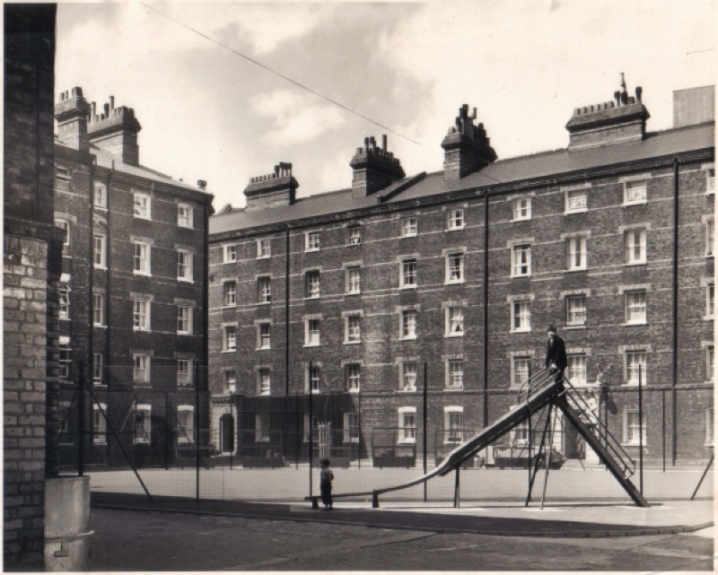Peabody Voices
Working with interviews from local tenants and ‘hiding’ them within playful structures, this project looked at the ‘fragmentation’ of identity as explored through snapshots of the familiar and how conscious awareness forms through the act of play and the echoes of childhood playtime to raise awareness of the growth in community values. The structures and rules of play prepare the child for adulthood, creating a scaffold of meaning that builds to shape community.
The work focuses on the importance of memory in maintaining and constructing meaning from the past; a process of remembering and forgetting with the many distortions this creates. Re-imagining the concept of place, people, sights and sounds Peabody Project looks to representations of the past to inform the present.
Oral history maintains a central role in any community; to speak is to assert and therefore be assured of ones existence. It is a vehicle between the conscious and unconscious which serves as a focus of discourse, grounding its parameters in the 'I'. In demonstrating this, the voice discloses both being and time, creating the story of who and what we are.
The object functions as a container for meaning, creating a record of learning, as such it can only ever fail to fall short of its goal, as the complexities of interpretation spill beyond its boundaries. The things we surround ourselves with fracture into a million shards of ideas and intention; many realised, others not.
A community similarly operates as a container for expectation and desire, a vision of beliefs and dreams. A community acts as both playground and as a cauldron for change. It derives its strength through a narrative of continuity, a lineage that includes a commitment to pluralism, ethnic diversity and social engagement. It is the voice that demands to be heard above the clamour for ‘regeneration’, a much maligned term which those seemingly powerless to instigate change in their name have grown weary of hearing, spoken by those draped in the shadow of social engineering.
As a precursor to a deeper reflection on these values, the Peabody Project has sought to capture the views of a community questioning its perspective on the nature of social discourse in the face of dramatic change. Having lived on the Peabody Estate at Southwark St for eleven years Tony Maas is sympathetic to the frustrations of many relating to the ‘vision’ for the area and its subsequent impact on the lived experience as opposed to the conceptual model of vested interests. How do we address the need for change and growth in an era of corporate branding whilst giving local people a say in that bright vision of tomorrow?
